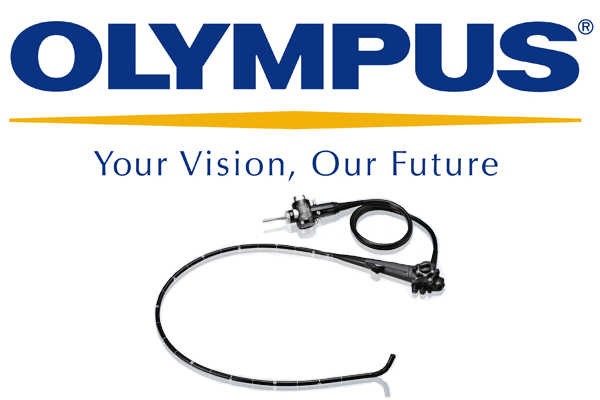The FDA yesterday confirmed that Olympus (TYO:7733) sold the endoscopes implicated in a series of deadly hospital-acquired infections without the safety watchdog’s approval, as more hospitals in California and Connecticut reported infections from the scopes.
Although the fiberoptic Olympus TJF-Q180V duodenoscope “does not currently have a 510(k) clearance,” the FDA said, it’s not advising hospitals to cancel scheduled endoscopic retrograde cholangiopancreatography procedures using that device or 2 other models made by Fujifilm Holdings (TSE:4901) and Hoya Corp.‘s (TYO:7741) Pentax subsidiary.
“Olympus has a pending 510(k) application for this device, and the company continues to market the product while the application is under review. FDA is not taking action against Olympus regarding its device during our review of the application, because, based on the information currently available to the agency, we believe that that removal of the device from the market could lead to an insufficient number of available duodenoscopes to meet the clinical demand in the United States of approximately 500,000 procedures per year,”the FDA said yesterday. “The FDA’s analysis indicates that the reported duodenoscope-associated infections have occurred in patients who have had procedures with duodenoscopes from all 3 manufacturers. At this time, FDA has no evidence that the lack of a 510(k) clearance was associated with the infections.”
FDA spokeswoman Karen Riley told CNN that Olympus put a new design of the TJF-Q180V duodenoscope on the U.S. market in 2010, but the FDA didn’t notice until late 2013 or early 2014 that the company never asked for clearance.
“Why didn’t we notice it? I don’t know,” Riley said. “The company clearly made these modifications to make the device safer, but it seems to be that it wasn’t safer.
“More than 500,000 of these procedures are done every year in the U.S., and the risk of bacterial transmission is actually really very, very low,” she added. “We believe the benefits outweigh the risks.”
In a statement, Olympus told the news channel that it didn’t think needed the FDA’s permission to sell the device but has since applied for it at the agency’s request.
“The emergence of drug-resistant microorganisms is a challenge to the entire health care community. Olympus is working with relevant medical societies and our customers in research of this emerging issue and the development of additional safeguards to prevent infection associated with [duodenoscope procedures],” the company said.
Fujifilm and Pentax won 510(k) clearances for their duodenoscopes, Riley said.
Also yesterday, a 2nd top Los Angeles hospital reported an outbreak of the drug-resistant “superbug” infections and dozens more potential exposures from procedures performed with suspect duodenoscopes.
The notice from Cedars-Sinai Medical Center of 4 such infections and 67 more at-risk patients coincided with a hospital in Hartford, Conn., reporting a similar outbreak involving at least 5 infections and more than 280 potential exposures. The Cedars-Sinai cases, like the larger number of infections and potential exposures reported last month at the UCLA Ronald Reagan Medical Center in Los Angeles, involved a family of germs called carbapenem-resistant Enterobacteriaceae. The bacteria identified on Wednesday in the Hartford Hospital outbreak was a drug-resistant strain of E.coli.
Seven patients were infected with CRE during endoscopies at the UCLA teaching hospital between Oct. 3 and Jan. 28, and 2 died. Officials warned at the time that as many as 179 people may have been exposed to the so-called superbug.
The latest flurry of infections has raised new questions about whether manufacturers’ recommendations for disinfecting duodenoscopes are sufficient to protect patients. The complex design of the instrument – flexible tubes that are threaded down the throat and stomach to the top of the small intestine to drain fluids from blocked pancreatic and bile ducts – may hinder proper cleaning, the FDA has warned.
A senior FDA official said this week that manufacturers’ own tests of disinfection measures they recommend contained flaws that rendered those cleaning procedures unreliable.
Olympus was the maker of the single duodenoscope linked to all 71 patients of concern at Cedars-Sinai, from August 2014 to February 2015, and of 2 suspect scopes tied to 179 potential exposures dating back to October at UCLA. Seven of UCLA patients were confirmed to have been infected and 2 died.
One of the 4 infected Cedars-Sinai patients died from “an underlying disease,” not from the bacteria, as the infection had by then been cleared, the hospital said in a statement.
Hartford Hospital said it found 5 or 6 of its patients had contracted drug-resistant E. coli last year from 2 duodenoscopes used in 281 more procedures, leading doctors to conclude that those additional patients may have been exposed.
Both privately run Cedars-Sinai and UCLA, a public hospital, say they were offering potentially exposed patients free home-testing kits. The 2 facilities also said they have begun using enhanced disinfection procedures, above and beyond the manufacturer recommendations.
Duodenoscopes have been associated with episodic infections for more than a decade. But an increasing number of germs have developed a resistance to antibiotics, making them potentially more dangerous and difficult to treat.
Material from Reuters was used in this report.


